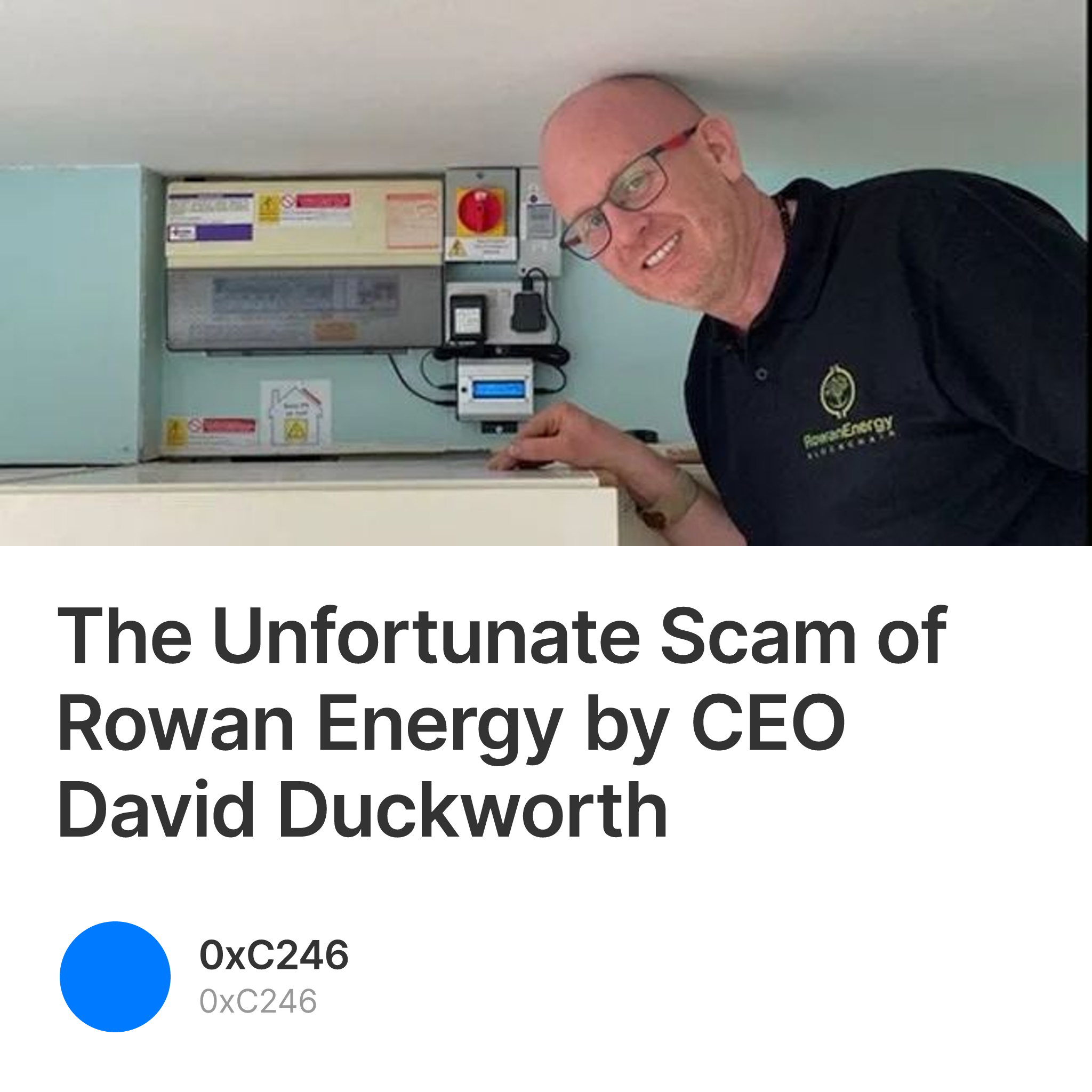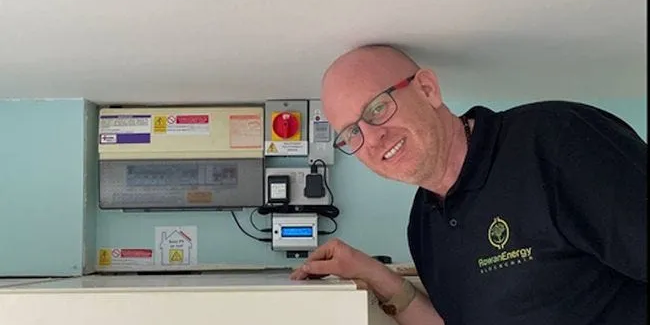This report details a series of events involving Rowan Energy Ltd. and its CEO, David Duckworth, surrounding the misrepresentation and mismanagement of the company’s cryptocurrency token, RWN. Based on verified blockchain evidence, internal communications, and public statements, Rowan Energy appears to have:
-
Misled investors about the total supply of RWN tokens.
-
Included a concealed minting function in the smart contract that enabled arbitrary supply increases.
-
Failed to disclose or refute critical allegations over a two-month period following whistleblower exposure.
-
Shut down investor discussion and retired the token without audit, remediation, or accountability.
2. Background
Rowan Energy promoted itself as a blockchain solution for clean energy tracking and tokenized energy production rewards. It launched the RWN token on a private blockchain, claimed to follow ERC-20 standards, and listed the asset on exchanges such as MEXC and Probit.
Marketing claims included:
-
A fixed or capped token supply (545 million).
-
Proof-of-energy-generation mining mechanisms.
-
Secure wallet infrastructure and ecosystem utility.
3. Technical Findings
On April 21, 2025, a community developer published a detailed expose demonstrating the following:
3.1 Total Supply Misrepresentation
Using standard eth_call methods against Rowan’s exposed RPC node, the actual totalSupply returned was 945,000,010, nearly 400 million more tokens than officially stated.
3.2 Hidden Minting Function
The contract contained a non-standard method:
mintToken(address,uint256)
This function allowed arbitrary token minting to any wallet. The developer tested it by minting 1 billion RWN, increasing the total supply to 1.945 billion. The tokens were then burned.3.2.1 Undisclosed Minting = Fraud & Dilution
The ability to secretly mint tokens without informing investors constitutes fraudulent behaviour. This action diluted the value and share of all existing token holders without their knowledge or consent.
In traditional finance, this would be the equivalent of issuing millions of new shares behind closed doors while claiming scarcity to the public.
3.3 Suppression of Transparency
-
The Rowan block explorer did not show contract-level transactions such as mintToken calls.
-
Wallet balances and inflows appeared inconsistent with available transaction data.
-
This concealed token issuance and transfer behaviour from investors.
3.4 Wallet Security Concerns
The Rowan mobile wallet allegedly transmitted seed phrases to a central server over HTTPS, rather than using local transaction signing, a serious security flaw in cryptographic systems.
4. Company Response Time
Between April 16 and June 24, CEO David Duckworth posted 12 public updates to Telegram, characterized by:
-
Denials of wrongdoing (“claims are entirely false and misleading”).
-
Contradictory statements (“circulating supply has not increased”).
-
Delays and deferrals (promises of updates “next week”).
-
Vague technical language with no third-party validation.
-
Closure of investor dialogue (Telegram set to announcement-only).
-
Final abandonment of the token on June 24, 2025.
At no point did the company:
-
Address or rebut the
mintTokenfunction. -
Publish an audit or code analysis.
-
Commit to restitution or a community vote.
-
Offer transparency in the shutdown process.
5. Termination of Project
On June 24, 2025, David Duckworth announced that Rowan would:
-
Retire the RWN token,
-
Permanently end support for its blockchain,
-
Offer limited liquidity for small holders (via exchanges),
-
Propose undisclosed “share swap” arrangements under NDA for larger holders.
No apology or acknowledgment of the original allegations was provided.
6. Analysis & Assessment
The evidence supports the conclusion that:
-
Rowan Energy’s leadership misrepresented fundamental aspects of the RWN token.
-
The mintToken function was deliberately included and concealed from public-facing tools.
-
Investors were strung along with false promises of resolution.
-
The final shutdown was executed without transparency, audit, or accountability.
This pattern suggests:
-
Possible fraud or willful misrepresentation under securities or consumer protection law.
-
Investor deception via inconsistent public statements and information suppression.
-
Reputational damage control, rather than technical remediation.
8. Conclusion
The case of Rowan Energy and the RWN token illustrates how opaque blockchain projects can exploit trust, suppress dissent, and exit with minimal consequence. Despite its promises of clean energy and transparency, Rowan’s conduct demonstrates the opposite: concealment, misinformation, and calculated retreat.
The original article is linked below:
Uncovering the truth behind Rowan Energy’s RWN coin
This matter deserves further public, legal, and regulatory scrutiny.

